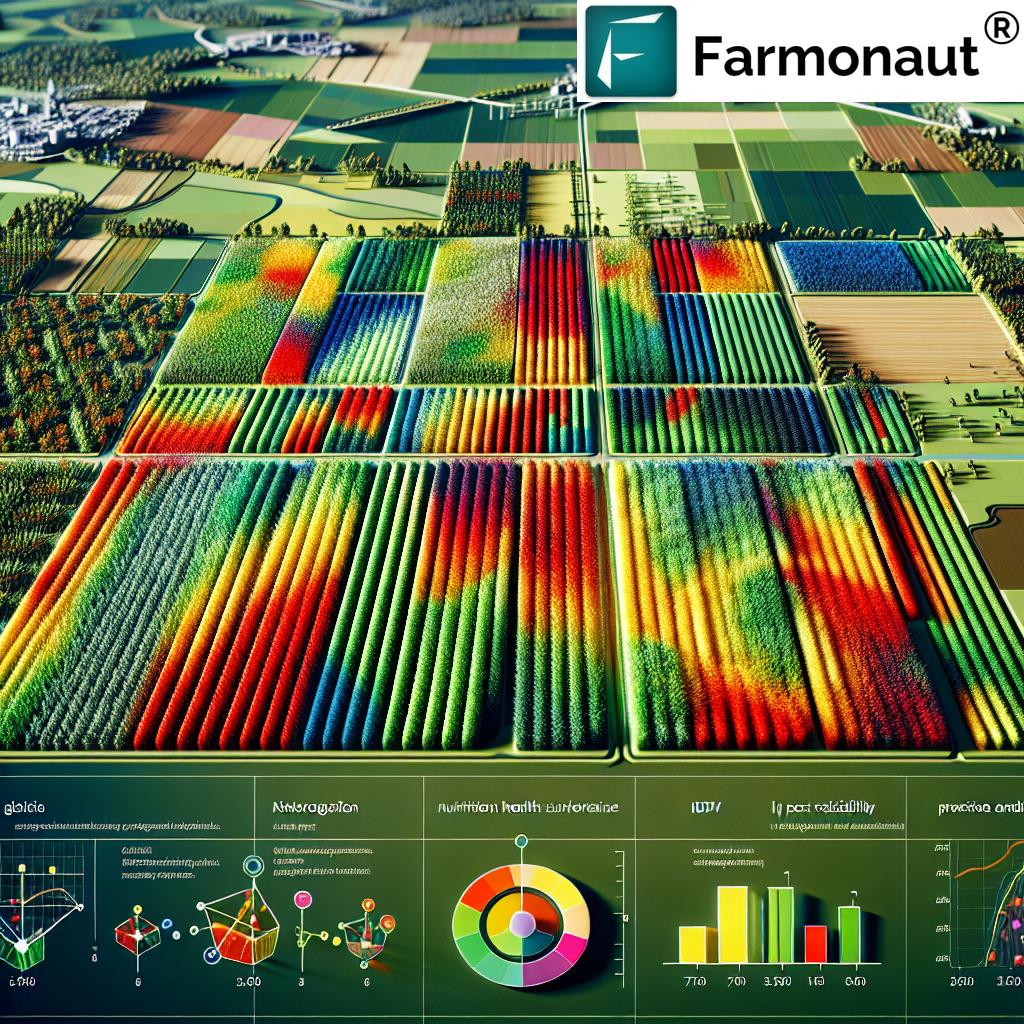Battery Operated Chemical Sprayer, Tiller & Irrigation Valve: Boosting Precision & Sustainability in Modern Agriculture [2025]
Table of Contents
Introduction: How Battery Operated Sprayers, Tillers & Irrigation Valves Are Revolutionizing Agriculture in 2025
The battery operated chemical sprayer, battery operated tiller, and battery powered irrigation valve collectively represent pivotal trends in the evolution of agriculture. In recent years, the integration of battery-driven technologies has revolutionized traditional practices by enabling farmers and stakeholders to improve efficiency, sustainability, and precision in their operations. This blog post dives deep into how these innovations—empowered by advancements in battery design, smart control, and ergonomic engineering—are driving sustainability, productivity, and world food security as we move toward 2025 and beyond.
As we tackle the challenges of climate change, resource management, and growing food needs, battery operated chemical sprayers, battery operated tillers, and battery powered irrigation valves are quickly moving from novelty to quintessential tools of the modern farm. Below, we explore their capabilities, environmental impact, benefits, and the unique role of Farmonaut’s satellite-powered services in supporting this new era of smart, sustainable agriculture.
Battery Operated Chemical Sprayers: Precision Crop Protection for the Modern Era
Chemical application remains a critical component of crop protection and high yields. Historically, spraying relied on conventional and manual tools or gasoline engines—options that presented significant limitations in efficiency, impact on health, and environmental sustainability. However, the emergence of the battery operated chemical sprayer has signaled a shift to more eco-friendly, precise, and productive practices in agriculture.
How Battery Operated Chemical Sprayers Work
- Battery operated chemical sprayers utilize a built-in, rechargeable lithium-ion or similar high-density cell battery to power a compact and efficient pump.
- With zero emissions and quiet operation, they overcome the noise, fumes, and heavy weight associated with gasoline engines or manual mechanisms.
- Advanced regulators and nozzles permit precise control over spray patterns and volume, allowing accurate application of pesticides and fertilizers.
- Lightweight and ergonomic design reduces operator fatigue—a major factor for farmworker safety and productivity.
- Modern battery packs support longer operational time, making them suitable for larger farms and minimizing frequent recharging.
Importantly, the shift away from gasoline not only reduces harmful emissions and pollutants but also minimizes the occupational health risks posed by noise pollution and exposure to fuel and exhaust. By empowering farmers with enhanced accuracy in the application of chemicals and fertilizers and minimizing chemical waste, these sprayers directly improve environmental management and farm economics.
Key Benefits at a Glance
- Zero emission & quiet operation: No carbon footprint, noise, or engine fumes.
- Water saving: Less overspray & runoff into soil and bodies of water.
- Higher precision: Controls ensure uniform crop coverage, better for controlling pests, weeds, and diseases.
- Operational efficiency: Spray larger areas faster, reducing labor hours.
- Manual limitations eliminated: Electric power minimizes operator effort and physical fatigue.
- Application cost savings: Less chemical and water waste reduces seasonal input expense.
Precision & Environmental Responsibility
The adoption of battery operated sprayers is intrinsically linked to precision agriculture. It is not just about operational efficiency, but about measurably reducing chemical runoff, protecting water sources, and minimizing harmful impact on soil biodiversity. These qualities make battery operated chemical sprayers a superior alternative to conventional sprayer models in environmental, economic, and regulatory contexts.
Battery Operated Tillers: Efficient Soil Preparation & Cleaner Farming
Efficient soil preparation forms the bedrock for effective cultivation and robust yields. In the long history of tillers, major tools were typically powered by gasoline—leading to high emissions, noise pollution, and complex maintenance. Enter the battery operated tiller: a next-generation, eco-friendly solution emerging as the choice for modern farmers and urban agriculture.
How Battery Operated Tillers Optimize Farming
- Electric motors: Use high-torque, brushless electric motors fed by robust rechargeable batteries.
- Reduced pollutants: No on-site fuel burning means zero emissions and quieter operation, positive for farmer health and community wellbeing.
- Minimized noise pollution: Silent operation compared to heavy motorized tillers; allows for extended hours without disturbing livestock or neighbors.
- Ease of use & portability: Lightweight design plus modular attachments facilitate operations in confined areas, such as greenhouses and smallholdings.
- Improved soil health: Can be programmed for optimal depth, promoting uniform compacted soil breaking, better aeration, and nutrient penetration.
A battery operated tiller is not simply a tool for breaking up compacted soil. It is integral to reducing the environmental impact of farming, eliminating reliance on gasoline engines that emit pollutants, and contributing to noise pollution. By enhancing soil aeration and nutrient penetration, these tillers directly support higher crop yields and better land stewardship.
Smart, Sustainable Design Features
- Automatic power management for increased battery life and energy efficiency.
- Interchangeable tiller heads and settings for different soil types and depths.
- Reduced operator fatigue makes battery tillers safer for long hours in the field.
- Low maintenance: No oil changes, spark plug replacement, or fuel storage issues.
- Compact form factor provides suitability for both large farms and urban agriculture scenarios.
Farmers can focus on smart planning and precision land preparation—tasks now crucial for sustainable agriculture—while relying on the latest battery operated tiller designs to deliver productivity and reduced labor cost per season.
Battery Powered Irrigation Valves: Smarter Water Management for a Resilient Future
Access to and efficient management of water are vital for agriculture, particularly with projected climate change impacts and increased water scarcity in many regions. Battery powered irrigation valves have emerged as game-changing tools for both traditional and modern farms, ensuring precise delivery of irrigation water and integrated resource management.
How Battery Powered Valves Enable Smart Irrigation
- Utilize long-life batteries (often lithium-ion or lithium-thionyl chloride) to activate and control irrigation lines — even in remote or off-grid areas without access to external power sources.
- Easily integrate with moisture, weather, and flow sensors for on-demand or scheduled water application.
- Allow smart controllers (sometimes AI-driven) to adjust valve operations based on crop requirements and real-time data.
- Support longer battery operational life thanks to low-power electronics and energy saving design.
- Quick and simple to install and maintain — ideal for smallholder and commercial scale farms alike.
A battery powered irrigation valve ensures that only required volumes of water reach the right areas, reducing waste and enabling precision—a crucial consideration as climate patterns shift. This technology not only enhances yield (by preventing water stress or over-irrigation) but also vastly improves water savings, ecosystem health, and sustainability.
Strategic Advantages for Farm Water Management
- Smart farming integration: Battery valves are compatible with IoT, AI, and various satellite-based monitoring tools.
See how Farmonaut’s carbon footprint monitoring tools can support your shift to sustainable resource management. - Water & power saving: Reduce water and energy waste compared to traditional electrically powered or manual valves.
- Lowered operational costs and longer battery replacement cycles.
- Suitable for remote areas and larger farms where electrical grids may not be available.
- Serves both row crop irrigation and high-value horticultural applications.
By enabling farmers to reduce water waste, enhance precision in water application, and boost yields independent of unreliable grid access, battery powered irrigation valves support a truly resilient and technologically integrated approach to farming.
Feature Comparison Table: Core Benefits of Battery Operated Chemical Sprayers, Tillers & Irrigation Valves
| Tool Type | Estimated Battery Life (hours) | Water/Energy Saving (%) | Precision Level (Low/Medium/High) | Efficiency Gain (%) | Average Cost Savings (per season, $) |
Sustainability Impact (Low/Medium/High) |
|---|---|---|---|---|---|---|
| Battery Operated Chemical Sprayer | 6–12 | Up to 25 | High | 30 | $150–$400 | High |
| Battery Operated Tiller | 4–8 | 15–22 (energy) | Medium to High | 40 | $200–$450 | High |
| Battery Powered Irrigation Valve | 12–24 (per cycle) | 30–55 (water) | High | 35 | $120–$370 | High |
Interpretation
- All three battery-powered tools deliver significant efficiency gains and measurable cost savings per season compared with traditional counterparts.
- Sustainability impact and precision levels are maximized, especially in controlling input wastage, water management, and reducing emissions.
- These innovations create durable value for modern farmers, promoting food security and resource management for the challenges of 2025 and beyond.
Unlocking the Farmonaut Advantage: Satellite-Driven Insights for Smart Agriculture
While battery operated chemical sprayers, tillers, and irrigation valves are transforming operational practices on the ground, Farmonaut is advancing the agricultural revolution from space. As a pioneering satellite technology company, we empower decision-makers in agriculture by providing real-time, actionable data that seamlessly compliments battery-powered farming tools.
- Satellite-Based Monitoring: Our multispectral imagery and analytics reveal crop health (NDVI), soil conditions, and operational recommendations directly addressing management needs. Integrating this information with your battery operated tools amplifies efficiency and precision.
- AI-Powered Advisory: Platforms such as Jeevn AI deliver AI-based real-time crop, weather, and resource strategies via app, making every spraying, tilling, and irrigation more insightful and adaptive.
- Blockchain Traceability: Enhance supply chain traceability, authenticity, and compliance through secure, verifiable records of chemical application and mechanized field interventions.
- Environmental Impact Tracking: Use carbon footprinting tools to measure the environmental outcomes of switching from gasoline engines to battery-powered farming. This supports global climate goals and sustainable certifications.
- Fleet & Resource Management: Our system supports fleet management and equipment tracking, maximizing tools utilization and reducing downtime across the agricultural supply chain.
- Scalable Solutions: Whether managing a large estate or seeking large-scale farm management, our modular solutions scale with your operation’s size and needs.
- API for Developers: Integrate our data directly into your custom systems. Discover more at the Farmonaut API and explore the API documentation.
By integrating battery-operated machinery with real-time satellite data, blockchain traceability, and AI-driven recommendations, our platform guides farmers in achieving unmatched precision, sustainability, and yield management.
To further support responsible adoption of battery powered irrigation valves and optimize water usage, our platform’s satellite-driven verification enhances eligibility for crop loans and insurance by providing verified, data-backed assessments.
Future of Battery-Powered Agricultural Tools: Outlook, Innovations & Challenges (2025 & Beyond)
As we approach 2025, the adoption of battery operated chemical sprayers, battery operated tillers, and battery powered irrigation valves continues to accelerate. Advances in battery technology—such as higher energy densities, faster charging, and expanded compatibility with renewable sources (like solar-powered field stations)—promise to overcome many of the current limitations.
- Longer operational time: By 2025, new lithium and solid-state batteries are set to offer multi-day cycles with rapid recharging.
- Sustainable integration: Solar field charging and modular battery swapping designs reduce reliance on external grids, making tools friendly for both remote areas and intensive large farms.
- Data integration: Connectivity with satellite monitoring, AI-based advisories, and IoT devices aligns battery-operated tools with larger digital resource management systems.
Key Challenges & Considerations
- Initial Investment: Upfront cost of battery operated tools may slow adoption for some smallholders, though operational cost savings can offset these within a few seasons.
- Battery Disposal & Recycling: Management of expired batteries is crucial to prevent secondary environmental impact; industry attention to recycling infrastructure is urgent.
- Supply Chain Robustness: Ensuring ready access to replacement batteries and critical parts in remote or rural areas.
- Training & Awareness: Operators must understand proper use, charging, and maintenance routines for optimal lifespan and safety.
Sustainability Synergy: Towards a Smart, Resilient Agricultural Landscape
The interplay of technology, precision, and environmental stewardship stands at the heart of 2025’s sustainable agriculture paradigm. Batteries are no longer mere power sources—they are foundational to a new approach where every drop of water, chemical, and watt counts.
By reducing emissions, waste, and unnecessary labor, and facilitating integration with data-driven agri-tech platforms such as Farmonaut, battery operated chemical sprayers, tillers, and irrigation valves are set to remain quintessential innovations in the agri-toolbox for a decade to come.
Explore the Farmonaut Subscription Plans
Take your sustainability and efficiency journey further. Discover cost-effective, scalable options for satellite-based monitoring, resource management, and real-time alerts empowering the adoption of modern, battery operated tools:
FAQs: Transforming Agriculture with Battery Power
What are the main advantages of using battery operated chemical sprayers compared to manual or gasoline engines?
Battery operated chemical sprayers offer zero emissions, quiet operation, and precise control over chemicals, reducing runoff, chemical waste, and operator fatigue. They also speed up application while enhancing crop protection and environmental sustainability.
How do battery operated tillers improve soil preparation and farm productivity?
Battery operated tillers deliver the torque needed for efficient soil breaking and nutrient penetration with no pollutant emissions and much less noise than gasoline models. Farmers report up to 40% time savings and healthier soils, leading to higher yields.
Can battery powered irrigation valves work in off-grid areas?
Yes! These valves were designed for remote farms, supporting long-lasting battery lifespans and smart control with minimal energy use—often lasting several months before recharging or battery replacement.
Are battery operated agricultural tools compatible with smart farming solutions?
Absolutely. These tools can be paired with IoT sensors, weather and moisture monitors, and satellite-based advisory platforms like Farmonaut, creating an integrated, data-driven approach to precision farming.
What’s the typical return on investment for battery operated tillers, sprayers, and irrigation valves?
Although initial costs may be higher, typical payback periods are short—thanks to lower labor costs, input savings, reduced downtime, and avoided fines/penalties for inefficient water or chemical use.
How is Farmonaut supporting the growth of battery powered agricultural tools?
We deliver affordable satellite monitoring, AI recommendations, resource management, carbon tracking, blockchain-based traceability, and open APIs designed to maximize the impact and operational success of your battery operated farm machinery.
Conclusion: Shaping the Future of Sustainable Agriculture
Batter operated chemical sprayers, battery operated tillers, and battery powered irrigation valves are foundational to the smart, sustainable farm of 2025 and beyond. They deliver measurable improvements across efficiency, precision, environmental responsibility, and labor savings, while supporting urgent needs for food security amidst unprecedented global change.
By leveraging the power of these innovative tools—together with advanced, satellite-driven digital solutions from Farmonaut—farmers and agri-leaders can confidently transition to practices that are not merely compliant or efficient, but truly resilient, sustainable, and future-proof.
Ready to transform your farming practices with actionable data?
Get started with the Farmonaut App for instant access to satellite-powered insights, AI-based advice, and blockchain traceability features.













